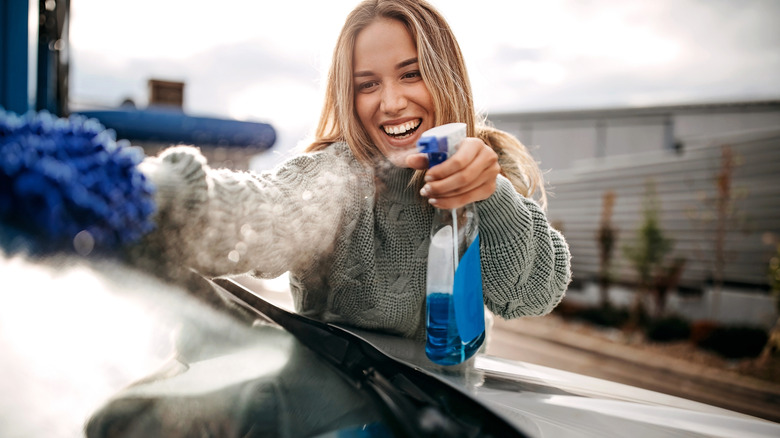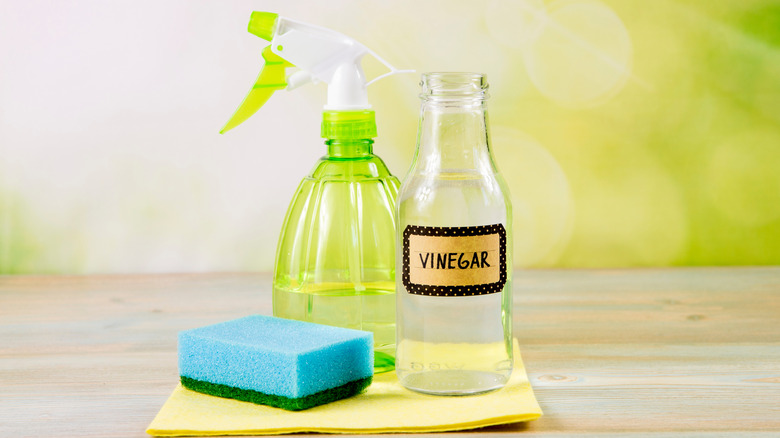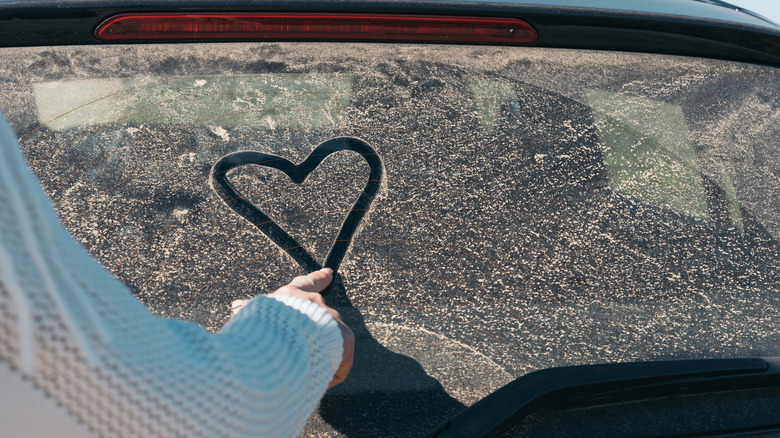How To Make Natural Car Window Cleaner - Learn The Recipe
Most of us enjoy a clean car. Sparkling paintwork looks great, and jumping into a freshly cleaned and vacuumed cabin just feels so much better than clambering in amidst a pile of rubbish, old coffee cups, and dropped receipts. While keeping a car clean is not actually a necessity, when it comes to your windshield, it really is essential to ensure this is kept nice and clear.
Opting for high-quality wiper blades is a wise move, as is applying a rain-repellant like Rain-X every now and again, but arguably the most important factor to consider is your screen wash and glass cleaner. Use a poor quality glass cleaner, and you'll be squinting through smears and streaks. Overlook topping up your screen wash, or simply putting tap water in there, and you'll soon be suffering from similar issues, especially in the colder winter months.
Screen wash isn't exactly an expensive product — a name-brand product will set you back around $5 for a gallon, although a quality cleaner probably costs around double that, if not more. However, if you can save money by making these products at home, and avoid using toxic chemicals at the same time, then surely that's an approach worth trying. It's actually surprisingly simple, and in some instances, two basic ingredients are all you need to produce an eco- and wallet-friendly formula that guarantees clear and streak-free glass.
Here's how to make that all-natural glass cleaner
The two ingredients you will need are vinegar and water. The vinegar in question should be either white vinegar or apple cider vinegar, but there's no need to use pricey variants — cheap and cheerful will do the job. As for the water, it's best to grab yourself some distilled water, as tap water will have various minerals in it, which could result in a streaky or spotty finish. Distilled water will also help the solution last a little longer, too, although filtered water is a great second-best option if that's easier for you.
To make the solution, simply add the vinegar to the water, using a 1:1 ratio. Here, a funnel will help avoid any spillages, and then all you need to do is shake well to complete the job. If you like, you can always put a drop or two of your favorite essential oil in there, to give the solution a more appealing scent. The same goes for a drop or two of food coloring, should you wish to deter anyone from mistaking it for water. Alternatively, you can attach a label stating what the product is.
The real benefit here is that it's way cheaper than buying pre-made car-specific glass cleaners, and it's safe, too. You know what's in there, so if little ones want to help out when it comes to car cleaning time, you don't need to worry about harsh chemicals getting on their hands or yours.
Other glass-cleaning tips you can carry out at home
Sometimes, after cleaning your glass, you might notice some stubborn stains that can't be shifted with cleaner alone. One common culprit is tar. It can be tricky to remove, and while there are specific cleaners out there for it, you can simply use WD-40 for the same task. Spray it on, wait a few minutes, agitate it with a cloth, and you should see the tar easily removed. As it happens, there are loads of other helpful uses for WD-40.
Don't forget to pay close attention to the inside of your windows too, especially if you vape while driving. Vape residue can be tricky to remove from the inside of your windows, but fortunately, the aforementioned DIY glass cleaner should be able to tackle it. You can also use liquid dish soap and water alone; both are much cheaper alternatives to forking out for a high-strength glass cleaner at the store.
If you like the chemical-avoiding, cash-saving approach to cleaning your car's windows, then making your own screen wash in the comfort of your own kitchen will likely seem just as appealing. This one does take three ingredients, and the first requires you to once again reach for those tubs of distilled water. In addition, you'll also want a cleaner, such as liquid dish soap, and something to work as an antifreeze, like isopropyl alcohol solution. Here's our guide on how to safely put the solution together at home.


